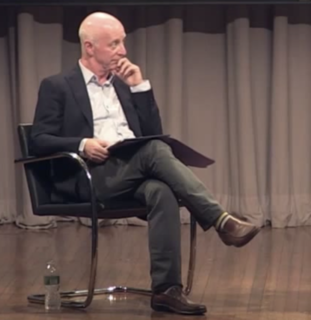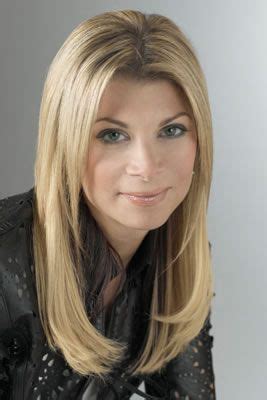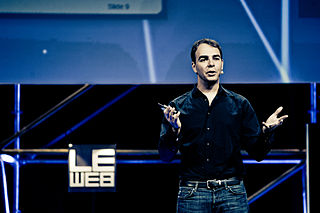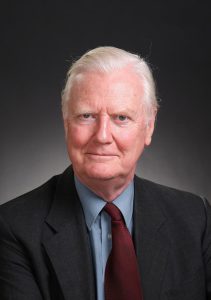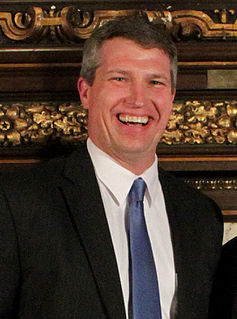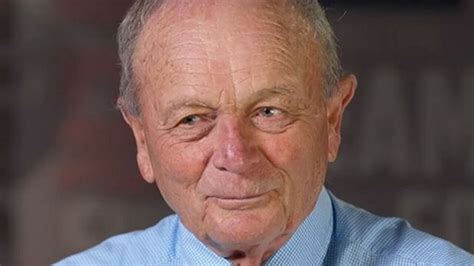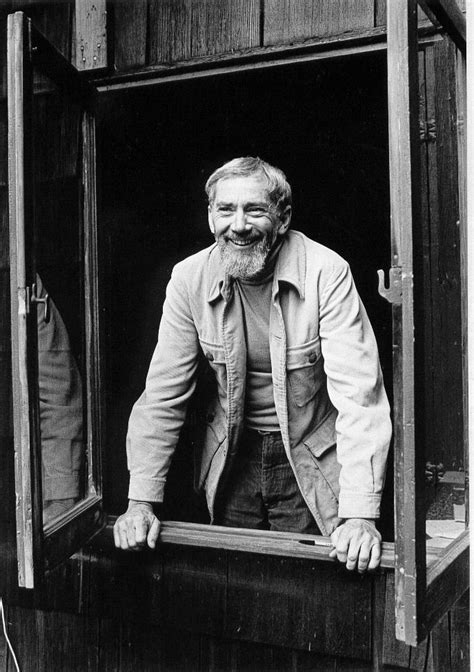Top 1200 Economics Quotes & Sayings - Page 20
Explore popular Economics quotes.
Last updated on November 5, 2024.
As mathematics had been my best subject at school, my parents proposed - and I accepted - studies at the University of Lund in mathematics, statistics, and economics. The choice of the latter subject is said to be due to the fact that at the age of five years, I was very fond of calculating the cost of the various cakes my mother used to bake.
There exists no third principle for the organisation of the economics process which can be rationally chosen to achieve any desirable ends, in addition to either a functioning market in which nobody can conclusively determine how well-off particular groups or individuals will be, or a central direction where a group organised for power determines it.
There is absolutely no single aspect of one's personality that is more important to develop than empathy, which is not a skill at which men typically are asked to excel. I believe empathy is not only the core of art, literature and music, but should also be at the core of society, from ethics to economics.
I was very interested in politics in college and was heading to be a lawyer. I have a degree in economics and I was interested in it. I hadn't really gotten super serious about it and I'd done a lot of student politics in high school. I really think it would be interesting and fun and challenging to go into politics.
I was taking all prints and I brought them to the Magnum meetings, trying the old Josef Koudelka trick: Give them to photographers, who are getting bored during the talks about the economics of the agency, to look through with a pen. They'll separate them in two piles. I started to find the core pictures that people seem to relate to.
I think that there are non-physical laws all right: genuine (if not strict) laws written in the language of biology, economics, and so on. But I don't regard that as a contentious issue. Even reductionists about chemistry will think that there are special chemical laws whose formulation makes essential use of chemical terminology.
New York remains what it has always been : a city of ebb and flow, a city of constant shifts of population and economics, a city of virtually no rest. It is harsh, dirty, and dangerous, it is whimsical and fanciful, it is beautiful and soaring - it is not one or another of these things but all of them, all at once, and to fail to accept this paradox is to deny the reality of city existence.
Marriage emerged some forty-five hundred years ago and evolved into a widespread and accepted institution that bonded families, maintained order, and created wealth. Unlike today, where many of us are searching for our romantic "soul mate," marriage was originally more about economics than deep emotion.
I'm very primitive in terms of economics. The kind of new business in which stock gets more valuable because the company grows, but there must be limits to growth. But if publishing is expanding to fill that retail space, it seems like there may be a necessary and unpleasant correction waiting down the road. How many books to people WANT?
As a child, I had no idea that I would end up in the film industry. My ambitions changed from wanting to join the army like my grandfather to taking up merchant navy as a career to running for India, and finally, investment banking while I was a student of economics honour. But during my college days, I began to get offers for modelling.
I don't think Brian Cox does 'The Wonders of the Solar System' because he believes the world would be a better place if people understood about the rings of Saturn; I just think he finds physics extremely interesting. It brings him joy, and he wants to spread the love. I feel the same about economics.
Let's start with the euro. What on earth were we thinking? How could anyone with the faintest grasp of economics have believed it was anything other than sheer insanity to yoke together diverse national economies such as Greece, Ireland, Germany and Finland under a single exchange rate and a single interest rate?
Considering that we live in an era of evolutionary everything---evolutionary biology, evolutionary medicine, evolutionary ecology, evolutionary psychology, evolutionary economics, evolutionary computing---it was surprising how rarely people thought in evolutionary terms. It was a human blind spot. We look at the world around us as a snapshot when it was really a movie, constantly changing.
I look forward to the day when being called 'another Monica Lewinsky' refers to the hard work behind a master's degree in social psychology from the London School of Economics, after spending the first act of one's life deflecting the shame of a scandal that should have rested on the shoulders of a man old enough to have known better.
It turns out that advancing equal opportunity and economic empowerment is both morally right and good economics, because discrimination, poverty and ignorance restrict growth, while investments in education, infrastructure and scientific and technological research increase it, creating more good jobs and new wealth for all of us.
My high school, the Illinois Mathematics and Science Academy, showed me that anything is possible and that you're never too young to think big. At 15, I worked as a computer programmer at the Fermi National Accelerator Laboratory, or Fermilab. After graduating, I attended Stanford for a degree in economics and computer science.
The astounding variety of foods on offer in the modern supermarket obscures the fact that the actual number of species in the modern diet is shrinking. For reasons of economics, the food industry prefers to tease its myriad processed offerings from a tiny group of plant species, corn and soybeans chief among them.
To join or not to join films was the biggest choice I had to make. I'd done two years of biogenetic engineering, was an economics graduate and a gold medalist. I had also been a Bharatanatyam dancer from age five, always won the best actress award in school. Finally, I decided to do things for my soul, chose to act.
Capitalism is the only system that can make freedom, individuality, and the pursuit of values possible in practice. When I say 'capitalism,' I mean a pure, uncontrolled, unregulated laissez-faire capitalism - with a separation of economics, in the same way and for the same reasons as a separation of state and church.
Learn computer science. It's extraordinarily helpful. I like recommending learning economics as well so they think in terms of business, they have rational frameworks for looking at the world, but yeah, computer science is an amazing way to get into, even if you want to be CEO, having a tech background is helpful.
I don't like stuff that can only go into one set; I want stuff that can be applied across sets. It's a more real Lego building experience. And, of course, it's the same from a manufacturing point of view. I want elements that are universal; that gives me the best economics and best utilisation of the mould.
It became clear I wanted to be a development economist. I mean, I said I wanted to work on the economics of poor countries. And I'd actually say that I don't think that was so much about narrowing the gap as about increasing their incomes, which means economic growth, which is really my prime interest.
You don't have to get a job that makes others feel comfortable about what they perceive as your success. You don't have to explain what your plan to do with your life. You don't have to justify your education by demonstrating its financial rewards. You don't have to maintain an impeccable credit score. Anyone who expects you to do any of those things has no sense of history of economics or science or the arts.
Since scarcity is the basic economic problem, if it does not exist then there is no reason for my economics course. Devoting time to the study of how people use limited resources to fulfill unlimited wants and needs should help us to discover how to best utilize the resources we have at our disposal.
Unlike economics, whose sole preoccupation in our finance-obsessed era is the near-term profit motive, history offers a way to place our tiny lifespans in a narrative that spans dozens of generations - perhaps even reaching into a future where capitalism is no longer our dominant form of economic organization.
Fascism entirely agrees with Mr. Maynard Keynes, despite the latter's prominent position as a Liberal. In fact, Mr. Keynes' excellent little book, The End of Laissez-Faire (1926) might, so far as it goes, serve as a useful introduction to fascist economics. There is scarcely anything to object to in it and there is much to applaud.
I chose to write about food: food is inherently political, but it's also an essential part of people's real lives. It's where the public and private spheres connect. I wanted to show readers that the larger politics of war and economics and U.S. foreign policy are inextricably bound to the supposedly trivial details of our everyday lives.
The Greek idea of fate is moira, which means "portion." Fate rules a portion of your life. But there is more to life than just fate. There is also genetics, environment, economics, and so on. So it's not all written in the book before you get here, such that you don't have to do anything. That's fatalism.
I went to university for a couple of years and I didn't enjoy university. The studying and the accountancy, economics, I just hated that stuff. Now the irony is here I am lawyer, accountant, I do it all day every day and sit at a desk. So I've never ended up where I wanted to be in many ways. I always wanted to be a farmer.
Health is more than absence of disease; it is about economics, education, environment, empowerment, and community. The health and well being of the people is critically dependent upon the health system that serves them. It must provide the best possible health with the least disparities and respond equally well to everyone.
At least half of the popular fallacies about economics come from assuming that economic activity is a zero-sum game, in which what is gained by someone is lost by someone else. But transactions would not continue unless both sides gained, whether in international trade, employment, or renting an apartment.
All around us, aspects of the modern world - diet, exercise, medicine, art, work, family, philosophy, economics, ecology, psychology - have begun a long circle back toward their former coherence. Whether they can arrive before the natural world is damaged beyond repair and madness destroys humanity, we cannot tell.
For centuries, economic thinkers, from Adam Smith to John Maynard Keynes, have tried to identify the elusive formula that makes some countries more prosperous and successful than others. My curiosity about this topic spurred me, as a young professor of economics in the late 1970s, to research new ways of measuring national competitiveness.
At George Mason University I saw Hoppe present a lecture in which he claimed that Ludwig von Mises had set the intellectual foundation for not only economics, but for ethics, geometry, and optics, as well. This bizarre claim turned a serious scholar and profound thinker into a comical cult figure, a sort of Euro Kim Il Sung.
The nuclear approach I'm involved in is called a traveling-wave reactor, which uses waste uranium for fuel. There's a lot of things that have to go right for that dream to come true - many decades of building demo plants, proving the economics are right. But if it does, you could have cheaper energy with no CO2 emissions.
I do know enough about economics - and so do you - to understand that the 'stimulus program' of Barack Obama and his ravenous parasitic hordes, supposedly designed to 'repair' America's broken economy, reveals him to be unimaginably stupid, gibberingly insane, or simply the biggest, most barefaced criminal thug ever to occupy the White House. And that's saying a lot.
What's the single most important thing to learn from an economics course today? What I tried to leave my students with is the view that the invisible hand is more powerful than the hidden hand. Things will happen in well-organized efforts without direction, controls, plans. That's the consensus among economists. That's the Hayek legacy.










